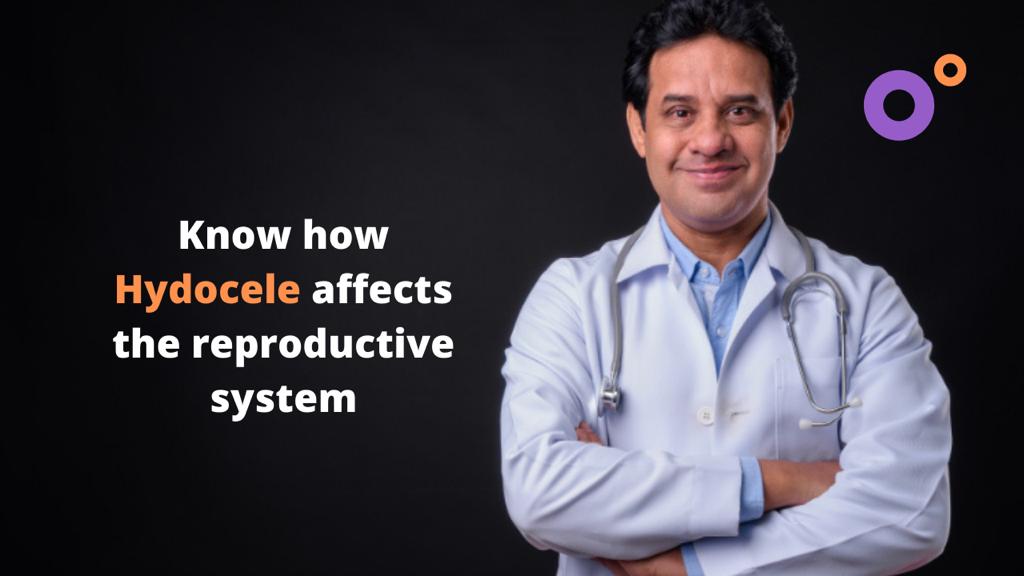How does Hydrocele affect the reproductive system?

Introduction
Medically reviewed by
"Dr. Aarushi Aggarwal MBBS, MS - Obstetrics & Gynaecology"
Hydrocele usually doesn't affect fertility or the reproductive system. A Hydrocele is a collection of fluid in the scrotum and is associated with an underlying testicular condition that can cause serious complications.
What is Hydrocele?
The normal testis is surrounded by a smooth protective tissue sac which makes 'lubricating' fluid to allow the testis to move freely. Usually the excess fluid drains away into the veins in the scrotum. If the balance is disturbed between the amount of fluid being produced and the amount which is drained, some fluid accumulates as a Hydrocele.
Symptoms: -
Hydroceles is common in babies and usually disappears without treatment by the age of 1. But if your baby's Hydrocele doesn't disappear after a year, doctor’s visit is mandatory. Older boys and adult men develop Hydrocele due to inflammation or injury within the scrotum. This inflammation might be caused by an infection in the testicle or in the small, coiled tube at the back of each testicle (epididymitis). Sometimes, the swollen area might be smaller in the morning and larger later in the day.If you or your child has sudden or severe pain in their scrotum you must see a doctor to rule sign of another condition called testicular torsion. Testicular torsion occurs when the testicles become twisted, typically due to an injury or accident. Testicular torsion is a medical emergency because it can lead to blocked blood supply to the testicle and ultimately infertility if untreated. It needs to be evaluated and treated immediately in order to save the testicle.
However, if you have scrotal swelling, visit your doctor to rule out other testicular conditions that can cause serious complications, including infection or tumor (might reduce sperm production or function), testicular cancer and Inguinal hernia (associated with a weak point in the abdominal wall which allows a loop of intestine to extend into the scrotum).
Diagnosis of Hydroceles: -
To diagnose a Hydrocele, at FirstCure Health we will conduct a physical exam to check for tenderness in the scrotum and shine a light through the scrotum. This is called transillumination, permitting the doctor to determine if there’s fluid in the scrotum. If fluid is present, the scrotum will allow light transmission and the scrotum will appear to light up with the light passing through. However, if scrotal swelling is due to a solid mass (cancer), then the light will not shine through the scrotum.The doctor may also apply pressure to the abdomen to check for another condition called inguinal hernia, while it’s usually not life-threatening, surgery may be recommended to repair it. Blood or urine sample may be taken to test for infections. An ultrasound may be done to check for hernias, tumors, or any other cause of scrotal swelling.
Treatment for Hydrocele: -
If your new infant has a Hydrocele, it will probably go away on its own in about a year. If your child’s Hydrocele doesn’t go away on its own or becomes very large, he might need surgery.In adults surgery may be recommended if the Hydrocele is large or uncomfortable. The operation for a Hydrocele involves making a very small cut in the scrotum or lower tummy (abdominal) wall. The fluid is then drained from around the testicle (testis). The passage between the abdomen and the scrotum will also be sealed off so the fluid cannot re-form in the future. This is a minor operation and is performed as a day care procedure, so does not usually involve an overnight stay in the hospital.
Another option for Hydrocele treatment is to drain it with a long needle. The needle is inserted into the sac to draw out the fluid. In some cases, a drug may be injected to prevent the sac from filling again. Needle aspiration is commonly performed on men who are at high risk for complications during surgery.
We may prescribe pain medication if necessary and you will be asked to avoid anything involving straddling, like riding a bike, for at least three weeks. Other strenuous activities should also be avoided during that time.Stitches at the incision site usually dissolve on their own, but we may ask to check them after a few weeks. Keeping the area clean using showers or sponge baths to prevent infection.
Why talk to Us?
We at FirstCure have top doctors equipped with most advanced procedures at guranteed lowest cost. We will assist you at every step from booking consultations, second opinions, arranging diagnostic tests, insurance approvals and related paperwork, admission to discharge and post surgery follow up consultation.